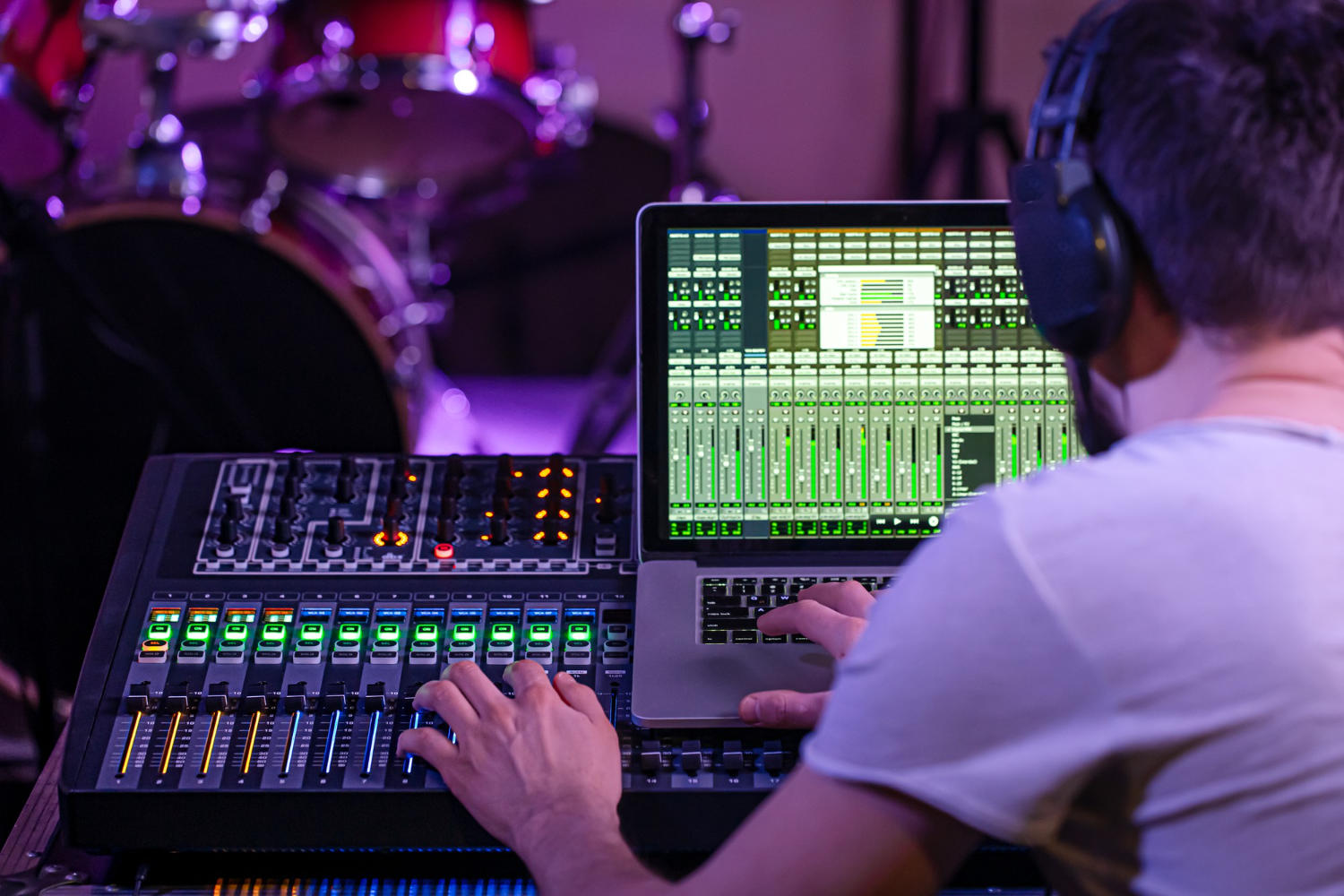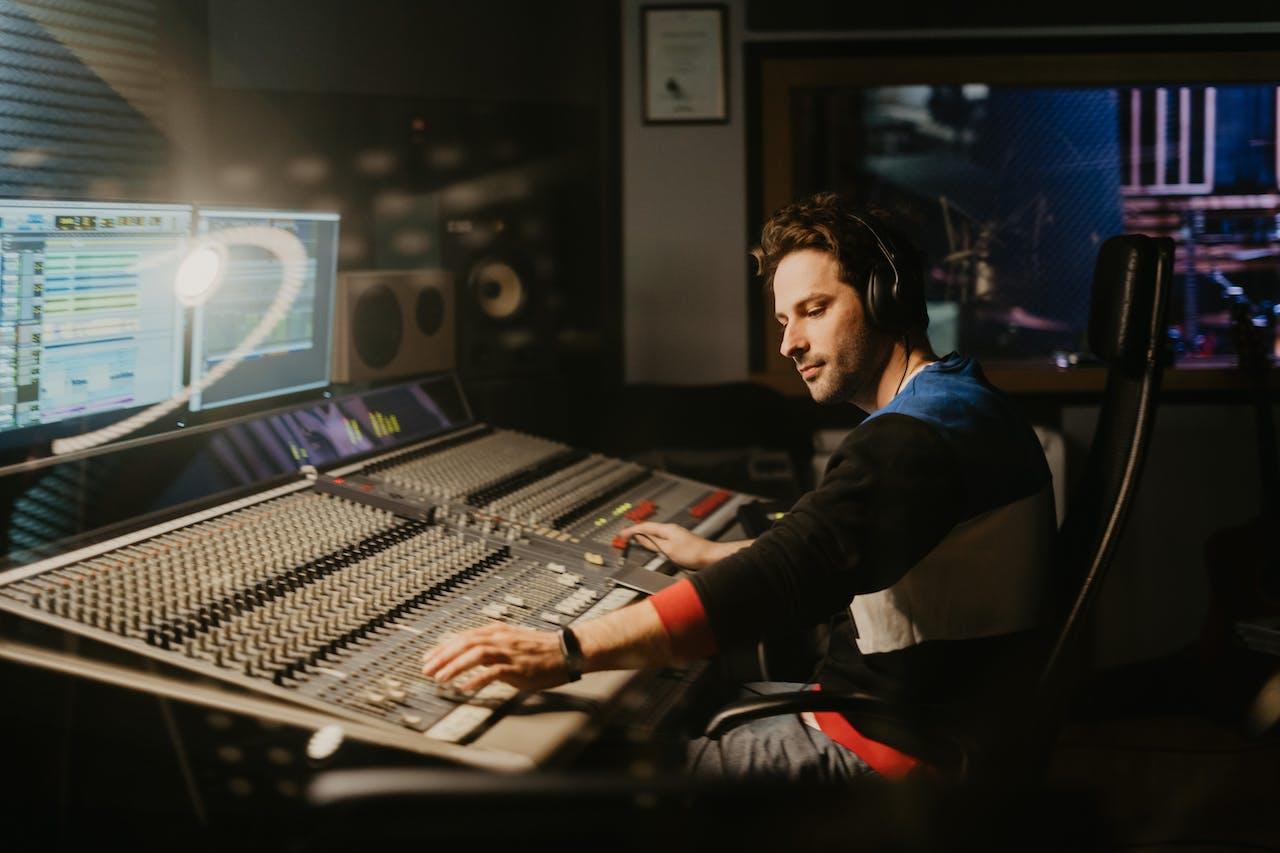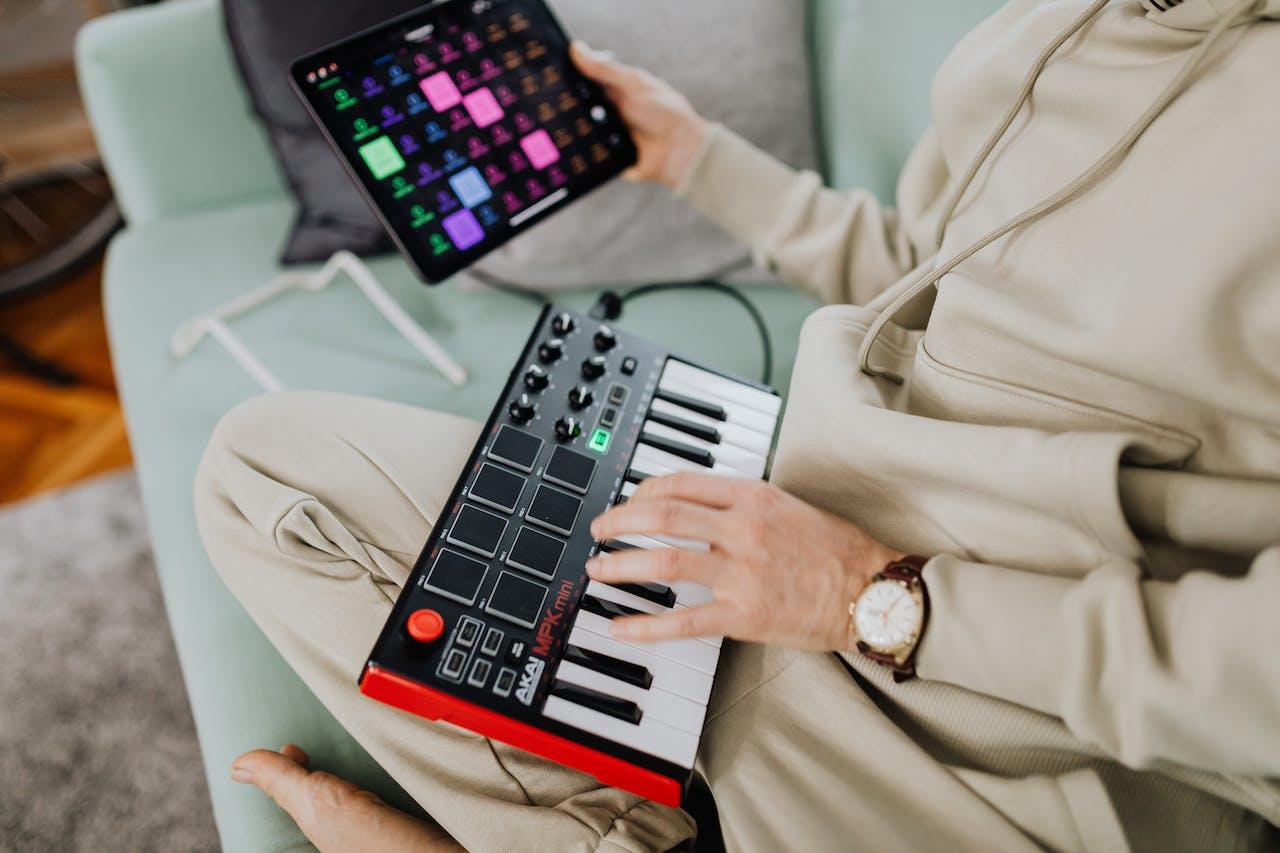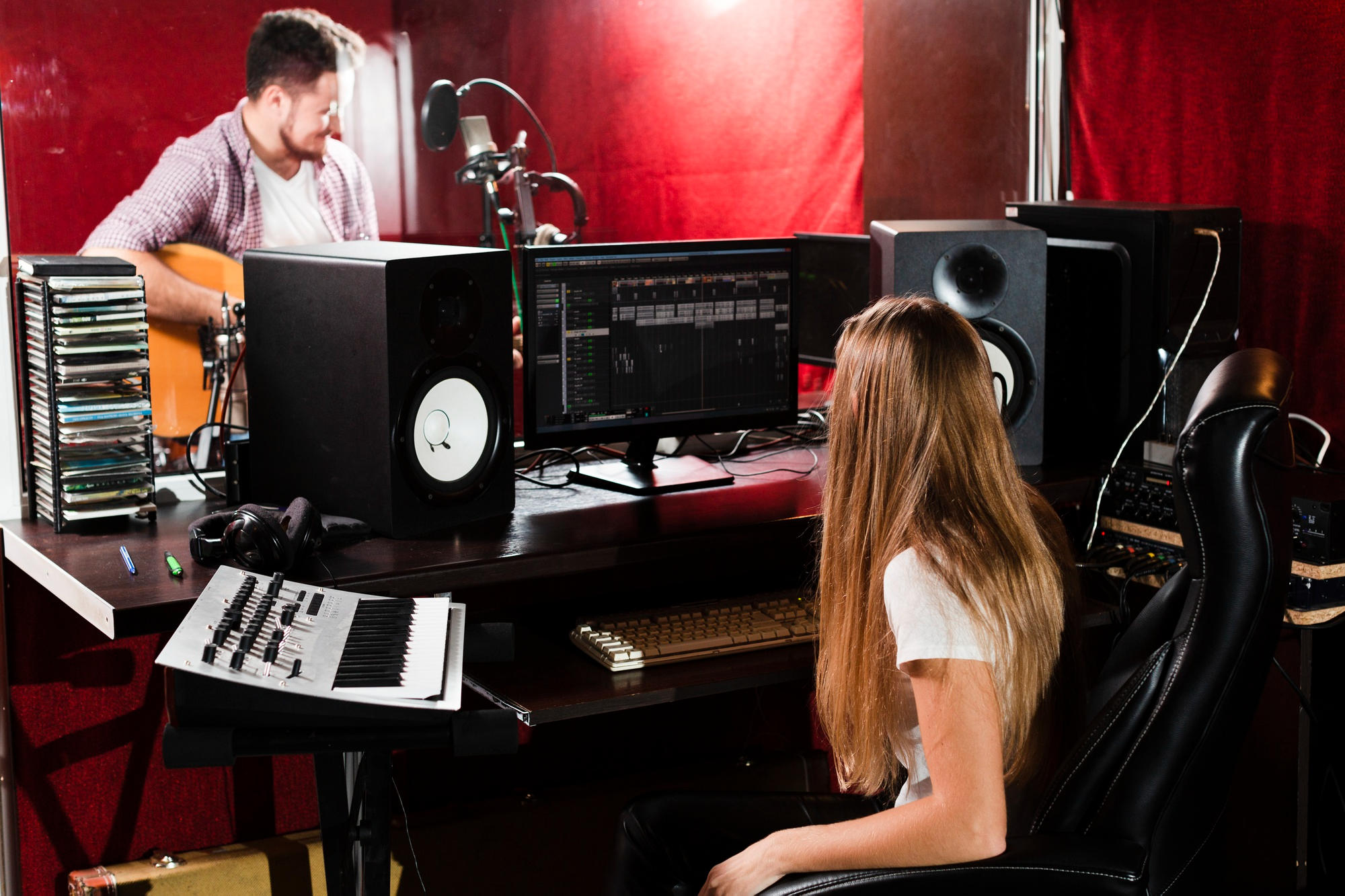In the world of music production, sound is not simply made and published; it must first be sculpted into a work of art. From the catchy hooks that get stuck in our heads to the heart-pounding beats that make us dance, music producers are the master architects behind the scenes. They carefully mold and shape sound, transforming raw recordings into polished tracks that resonate with listeners and bring the artists’ creative vision to life.
In the modern day, music producers typically use cutting-edge technology to manipulate sound in ways that bring out its true potential. They adjust levels, balance frequencies, and enhance the overall audial experience, ensuring that every instrument and note is perfectly placed within the mix. It's a meticulous process that requires a deep understanding of both music theory and technology.
But it's not just about the technical aspects! Music producers also have a well-developed artistic sense and are skilled at capturing emotions and translating them into sound. They work closely with artists to translate the songs in their heads into the real world, creating the desired atmosphere and mood.
Find out how music producers act as the liaison between musical artists and the rest of us!

What Is Music Production?
Production in music refers to the process of writing and reworking music (including the instrumental arrangements, the lyrics, and the vocals), recording the raw sound in a studio, mixing and mastering the sound with technology, and publishing the final product.
It can involve a lot of experimentation and creativity since there are infinite possibilities to modify recorded sound to create different atmospheres and ambiances!
Since music is a highly creative field, there is a lot of room for new and unique things within music production. However, some styles of music production can also be standardized to create the same type of sound, like in common pop songs.
What Do Music Producers Do?
A music producer is a person responsible for overseeing the creation of songs, from working with artists to perfect their arrangements and lyrics, to recording the audio, mastering the raw sound, and making the final product.
Of course, depending on your role and passion, you can work on specific aspects of music production instead of the entire start-to-finish process, and many producers who are on a team specialize in a few roles rather than the whole production process.
Producers often also do accounting, project management, and things like publicizing and staying on top of legal requirements for their own business and their clients.
Music producers can develop a signature sound to set them apart from others and draw specific types of artists in. They use different production techniques, genre-bending or blending, distinct sonic quality, or other means to create a recognizable and distinct sound.
How is Music Made? The Process of Music Production
How exactly do music producers take a song and/or album from an idea into a fully realized piece of media? There are seven major steps of production elements to take a song from an idea into a listenable piece of art.
Sometimes artists self-produce or co-produce their music alongside a specialized producer. Other times production will be handled by a music production company.
Step 1: Conceptualization and Composition
This is the songwriting phase. Artists begin with an idea and work to make it into something substantial enough to work on. They’ll have a general idea of the mood and atmosphere of the song and/or album.
They may collaborate with a music producer to experiment and carefully select certain elements of a song to create a solid foundation for a track and/or album.
The artists (and possibly music producer) come up with a rough idea of the instrumentation, arrangements, and structure of the song(s).
Step 2: Pre-Production
The rough ideas from conceptualization are experimented with, refined, and polished so that they can be successfully recorded with a firm goal in mind.
It’s decided what the final song will sound like and what needs to be recorded to achieve that vision.
Step 3: Recording (Production)
This is the step where artists actually record sets and samples that will be in the final draft of their song(s).
This can involve recording each instrument and vocal track separately (tracking) and/or recording the song played as a full band, depending on the method of production being used and the style of the song.

Step 4: Post-Production
Sound samples are edited and cleaned up to ensure they are in sync, sound clear, and create the desired effect. Treatments like overdubbing, layering, reverb, auto-tune, and others may be applied at this time.
Step 5: Mixing & Preparing the Final Details
The next draft of the song is made, typically with a DAW (Digital Audio Workstation) where the tiny details are fixed, such as the EQ and levels, panning, pitch, and more as needed.
Step 6: The Art of Mastering
The final draft of the song is created. All the elements are super fine-tuned to ensure the final result is exactly what the artists and producer wanted to achieve.
The technical aspects of the song are perfected so that the song can be formatted and distributed on CDs, MP3s, and any other formats needed.
Step 7: Distribution of the Music
The formal steps like copyrighting, advertisement, promotion, music video production, packaging design for physical media, and any other logistics are finalized and implemented.


Sound Sculpting Techniques
Sound sculpting is the art of manipulating sound to create a desired effect or mood. Music producers use various techniques to shape the sound of a recording, ensuring that each element is balanced and cohesive.
Music producers will use these techniques in the post-production, mixing, and mastering stages of music production.
EQ & Filtering for Achieving the Right Sound
EQ (which means 'equalization') is the process of adjusting the balance of frequencies within a sound. By boosting or cutting specific frequencies, music producers can bring certain elements to the forefront or push them back within the mix. This allows for greater clarity and separation between instruments, making each element stand out in its own space. For example, they may boost the low end of a bass guitar to make it more prominent in the mix or reduce the high frequencies of a cymbal to prevent it from overpowering other elements.
Filtering is a style of EQ that is often used, and there are different types of EQ like high-pass and low-pass filters, subtractive and additive EQ, dynamic EQ, mid-side EQ, and tonal balancing which are used to create the desired sound.
Balancing Sound with Compression & Dynamics
Compression is another essential tool in the music producer's toolkit. It allows for the control and manipulation of the dynamic range of a recording. By compressing the dynamic range, music producers can make the quiet parts of a song louder and the loud parts softer, resulting in a more even and consistent sound.
It brings out the nuances and subtleties of a performance, making it more engaging and impactful. Music producers carefully adjust the parameters of a compressor, such as the threshold, ratio, attack, and release, to achieve the desired effect.
Dynamics processing goes hand in hand with compression. It involves using tools like expanders, limiters, and gates to further shape the dynamic range of a recording. For example, a gate can be used to eliminate unwanted background noise, while a limiter can prevent a signal from exceeding a certain level. These techniques help in maintaining control over the volume and ensuring a consistent listening experience.
Modulation and Time-Based Effects
Modulation and time-based effects add depth and movement to a recording. Music producers use effects like chorus, flanger, and phaser to create a sense of space and dimension. These effects manipulate the frequency, phase, and timing of a sound, resulting in unique and interesting sonic textures and making it more engaging and immersive.

Music Producing with Synthesizers and Virtual Instruments
Synthesizers and virtual instruments have revolutionized the production of music, allowing the manipulation of sounds in once unimaginable ways.
Synthesizers generate sounds electronically, offering endless possibilities for experimentation and creativity. Music producers can design custom sounds from scratch, or use sampling, presets, and pre-designed patches to quickly achieve a desired sound. They can manipulate parameters such as oscillators, filters, envelopes, and effects to shape the characteristics of a sound.
Virtual instruments replicate the sounds of real instruments, allowing music producers to add realistic and organic elements to their recordings. From pianos and guitars to drums and orchestral instruments, musicians and music producers can use virtual instruments to layer different sounds, create complex arrangements, and add depth and richness to a recording.
Be open to change and don’t get too attached to the song you’ve written because most of the time you can make it better by throwing ideas around and trying new things.
Dave Fortman
How to Learn Music Production: Music Producer Tips
Interested in learning how to start producing music? Whether you’re an artist who wants to self-produce or aspiring to become an industry professional, there are a few ways you can get started.
Learn About the History of Music
First of all, you should familiarize yourself with the basic history of modern music including stylings, cultural impacts, notable artists, producers, and production companies, and advancements in the music production field.
You should also be familiar with musical terms and concepts, like music theory.
Take Music Producer Lessons
Learn from an experienced music producer so you can quickly grasp the basics and begin experimenting on your own! You can find a music production course of any level and for any aspect of music production at your fingertips here on Superprof.
Software for Music Production
Experiment with different music production programs to begin learning the technical aspects of sound capturing and mixing.
Some of the best music production software for beginners include GarageBand for Mac, FL Studio for Mac & Windows, Ableton Live for Mac & Windows, and LMMS for Linux & other platforms.
Annual growth of the Global Music Production and Distribution industry between 2018 - 2023
Unleash Your Creative Potential
Music producers are the architects of sound, sculpting and shaping raw recordings into polished tracks that resonate with listeners. They use a combination of technical expertise, artistic sensibilities, and cutting-edge technology to bring out the true potential of a recording. From manipulating frequencies and dynamics to utilizing effects and virtual instruments, music producers have a wide range of tools at their disposal.
Remember, music production is both an art and a science. It requires a balance of technical knowledge and artistic vision. So embrace your creativity, experiment with different techniques, and let your passion for music guide you on your journey as a music producer!
Embark on an inspiring journey to become a skilled music producer with our comprehensive music production class near me. Delve deep into the art and science of music production as our expert instructors guide you through every aspect of the process, from composition and arrangement to mixing and mastering. Whether you're a novice looking to explore your passion for music production or a seasoned musician seeking to refine your skills, our course offers a dynamic and immersive learning experience tailored to your individual goals and aspirations. With flexible online sessions, you can learn at your own pace and from the comfort of your own home, making our online classes for music the ideal choice for aspiring music producers worldwide. Join us today and take the first step towards realizing your dreams in the world of music production!
Summarize with AI:















